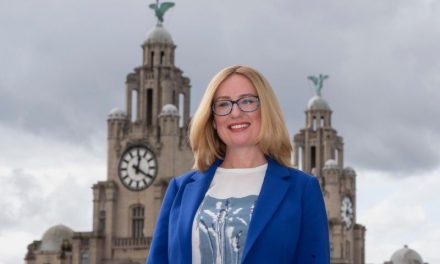Richard Smith, partner at Sandstone Law, comment on the first two days at COP26 and what we can hope for over the next 10 days.
“The world leaders have made their public pledges to reverse deforestation and to dramatically cut methane emissions. Boris Johnson has expressed his trademark ‘cautious optimism’ about the outcomes from the summit and now the hard talk begins as the climate change negotiators from each country try to convert their leaders’ broad statements of intent into binding and meaningful commitments.
The 2015 Paris agreement was voluntary and non-legally-binding, allowing all nations to set their own emissions goals through “nationally determined contributions.” There are no legal penalties if a nation does not meet its target — and hence no sense in which the agreement “compels” countries. There was plenty of good intent after the Paris conference but we now know that not enough was done to sufficiently control global warming. But there was a fundamental problem with Paris; the US, France and other wealthy countries pushed for flexibility in the commitments, and succeeded. And look where that has got us.
It should be a matter of public concern that ordinary people on earth have had to wait six years to learn that the industrialised nations have been complacent since Paris. There are, of course, extenuating factors: the Trump administration in the US, the Covid-19 pandemic, the recalcitrance of big polluters China and Russia, the industrialisation of India, the ecological crimes of Brazil. The question is whether Glasgow will be remembered as a historic turning point in the global fight against climate change.
We will need to see some radical and far-reaching commitments for that to happen. So what might we ask from the negotiators over the next ten days?
- Keep the Paris 1.5 degrees target alive and accelerate G20 global carbon reduction targets over the next 10 years even in face of the expected 16% increase in carbon emissions, ie. reverse the trend.
- Triple government investment in renewable and non-fossil energy technology and legislate to prevent the creation of new coal fired power stations and the use of coal in industrial processes
- Achieve binding commitments from the G20 rich economies to provide at least £100bn of investment each year into green technology investment in developing countries.
- Protect in law all land and biodiversity vulnerable to the effects of climate change around the world and protect from development all land that naturally stores or captures carbon.
- Bring forward the replanting of tens of millions of acres of lost forest. Throughout the world, about 900 million trees are cut down annually. This equates to about 2.47 million trees cut down every day. We rightly express our horror that the Brazilian government allows millions of acres of rainforest to be lost, but it is a sobering thought that as a result of long term deforestation in the UK only 13% of our own country is covered by forest.
- Disincentivise or ban the financial sector from continuing to invest hundreds of billions of dollars in fossil fuels and reduce the availability of new gas exploration permits by 75%.
- Force the price of new electric cars down to levels that are affordable to 80% of the population by 2025 and install millions of fast charging points around the world.
- Dramatically reduce household reliance on natural gas for hot water and heating by government funded retrofitting of air source heat pumps and immediately require all new houses to conform to strict zero carbon building regulations. Advance and bring down the cost of battery storage of domestic energy from solar panels and require all new commercial buildings to fit solar panels
- Accelerate the scaling up of green hydrogen production for use in vehicles and accelerate the transition to green hydrogen powered boilers in domestic and commercial buildings.
- Green all major cities with tree planting and encourage more walking and cycling in cities with safe cycle lanes and 50% fewer cars, vans and lorries.
The Paris Agreement acknowledged that its implementation would require economic and social transformation. That transformation has to happen over the next ten years and needs to start now.”




